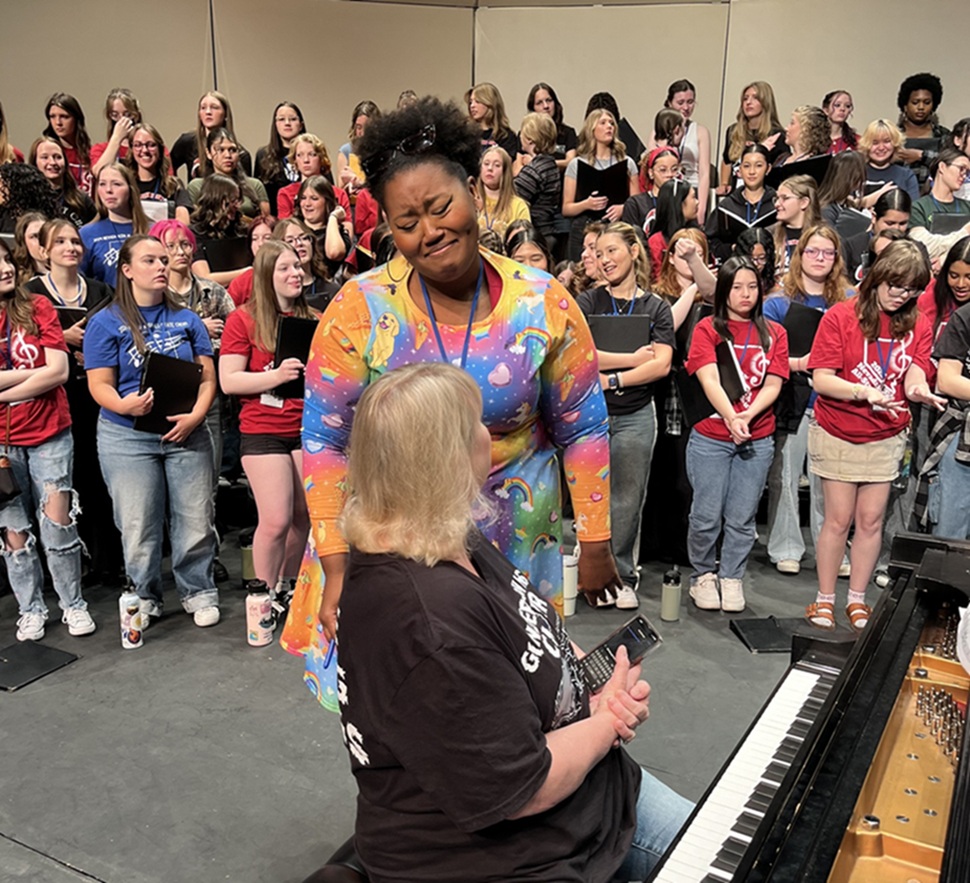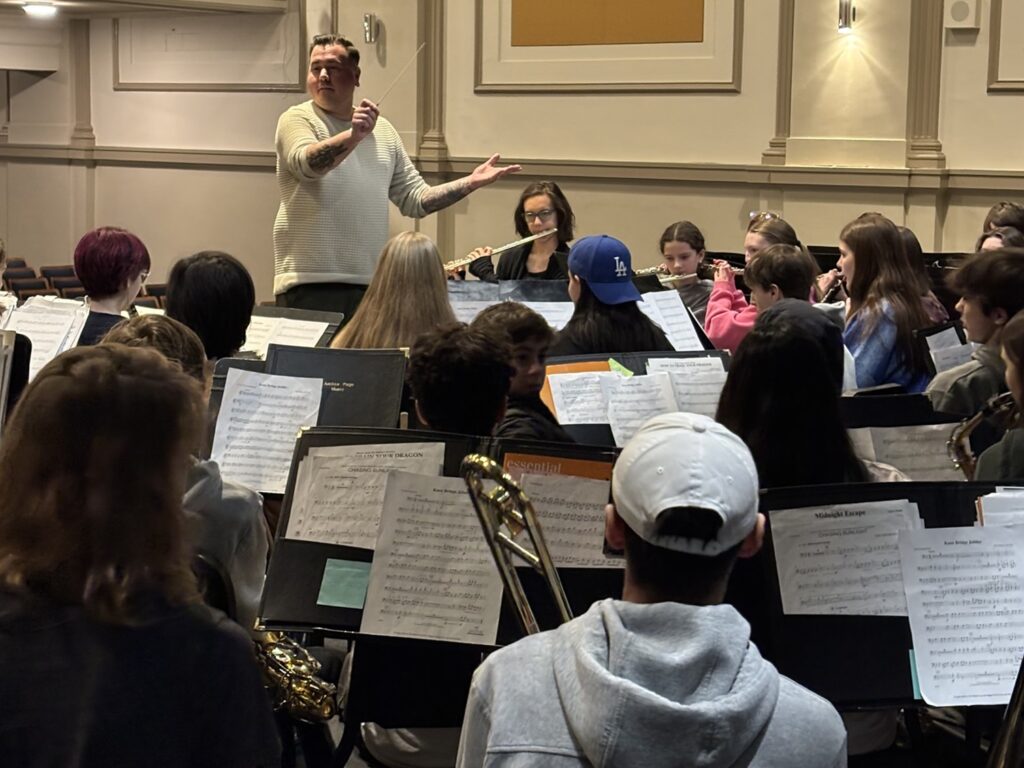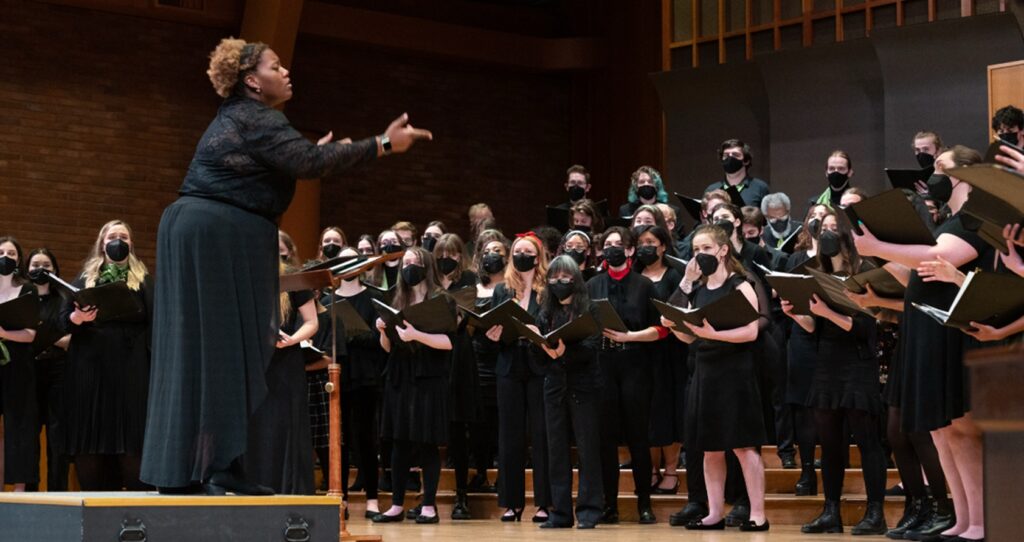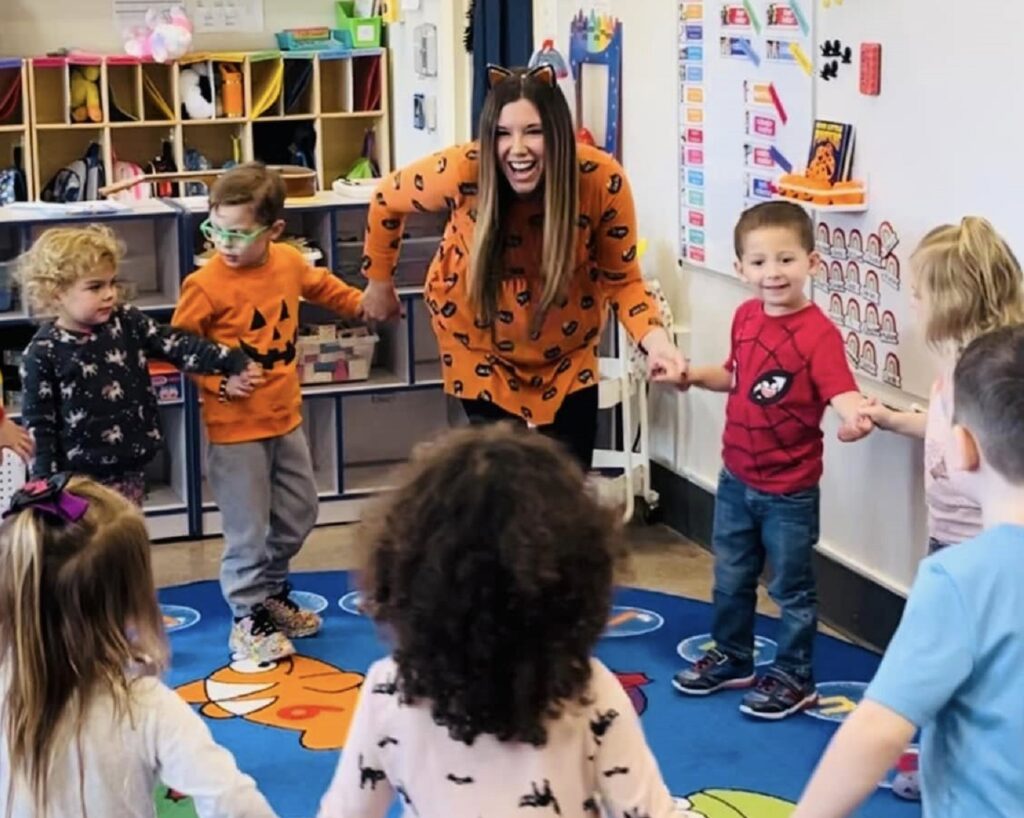Tagged Under:
Case Study: “Grow Your Own” Program Increases Access and Eliminates Barriers
Tennessee State University revitalized and accelerated its educator-preparation program thanks to a $2 million grant from the state department of education.
I am the music education coordinator at Tennessee State University (TSU), a Historically Black College and University (HBCU) in Nashville. I oversee the curricular development, instructional delivery, staffing, clinical placement and academic advising for our vocal and instrumental music education students. Annually, we prepare nearly 200 music majors for careers in music, and we offer a variety of degree pathways with several concentrations.
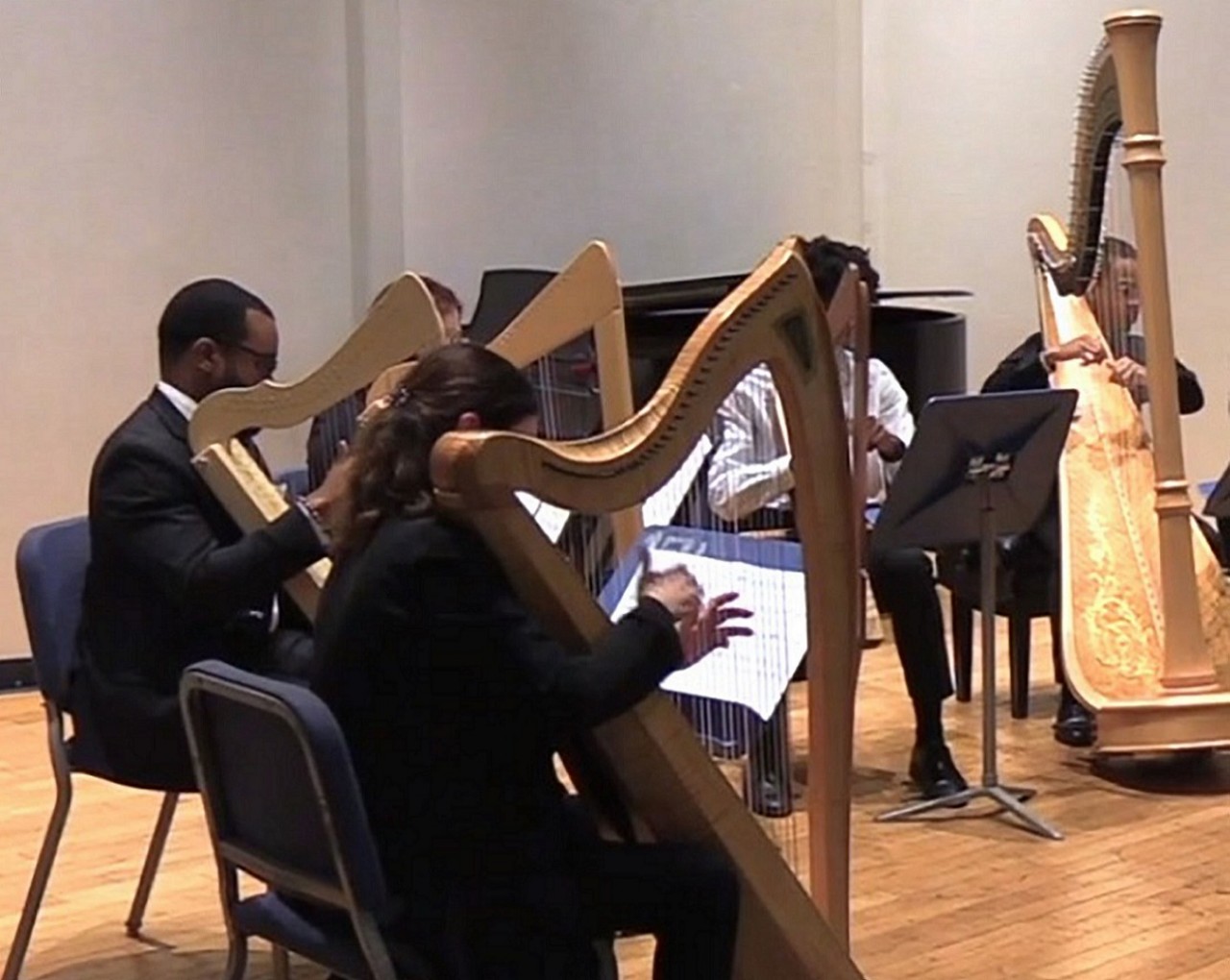 The music department at Tennessee State University has a rich legacy and a storied history. From our world-famous Aristocrat of Bands marching band to our broad range of music offerings that include everything from modern band to harp ensemble, we both appreciate our traditions while finding new ways to innovate in our programs.
The music department at Tennessee State University has a rich legacy and a storied history. From our world-famous Aristocrat of Bands marching band to our broad range of music offerings that include everything from modern band to harp ensemble, we both appreciate our traditions while finding new ways to innovate in our programs.
In the fall of 2020, the Tennessee Department of Education awarded our “Grow Your Own” educator preparation program a $2 million grant in efforts to increase access and remove barriers to the teaching profession. With this award, we have revitalized our program in several ways. While we were doing everything we could as an HBCU to help diversify the teacher pipeline within our region, the newly acquired funding has accelerated our work in ways we could have only dreamed of previously. The following initiatives and enhancements detail the work we have been doing in recent years to give our students a world-class music teacher preparation experience.
Global Student Support Services Lab
Our student support lab is the centerpiece of all programming for our educator preparation program. Through the lab, we can provide regular intensive tutorials and mock exams for the Praxis Core (which measures skills in reading, writing and mathematics deemed to be essential for all teacher candidates) and Praxis Subject Assessments (which measure general and subject-specific teaching skills and knowledge). These exams, along with the edTPA (a performance-based, subject-specific assessment), are required for teacher licensure in Tennessee.
Because many of our students are first-generation college students and rely significantly on federal student aid to finance their education, it can be problematic for our students to pay for these tests. We offer fee waivers for students to take their Praxis tests. We also include the costs for edTPA in the total costs of registering for their student teaching course. Since we have been offering these financial incentives, more students have attended the tutorial sessions, received waivers and passed their tests on their first attempt.
Minority Male Educator Initiative
A comprehensive body of research highlights the need for more minority male teachers in public schools. As an HBCU, we take pride in our commitment to improve the lives of traditionally underserved communities. In our music program, we tend to attract a larger than average number of minority males who are interested in the teaching profession.
My goal is to retain as many of them in the major as possible. With the minority male educator initiative, we have partnered with Metropolitan Nashville Public Schools and paired more than 20 of our minority male education majors with mentor teachers currently in the field who are also minority male teachers. This program has become very popular since its inception in the spring of 2021. It has built a vibrant community of male educators who are empowered and passionate about giving back and helping the next generation of music teachers.
Minority Teaching Fellows Program
One of the most profound ways that we have helped more students remain in the education program is by providing additional funding for school. With the “Grow Your Own” grant we received, we have been able to provide scholarships up to $5,000 per academic year for any minority education major who commits to teaching in the state of Tennessee for one year.
To receive the award, a music education major must submit an application form, maintain a 2.5 GPA and attend school full time (12 credit hours per semester). The award is renewable for each year they are in the program. This program has been immensely impactful in boosting our retention and graduation rates. Prior to this program, we were losing more than 50% of our music education majors within their first two years of study. Many of them were leaving school simply because they did not have adequate funding to pay for college. With these scholarships, we have seen our graduation rate increase by almost 20%. Also, our overall enrollment in the music education program has grown by more than 25% since the fall of 2020 when students began to take advantage of the scholarship opportunity. We hope to be able to increase the scholarship amount in future years.
Curriculum Innovation
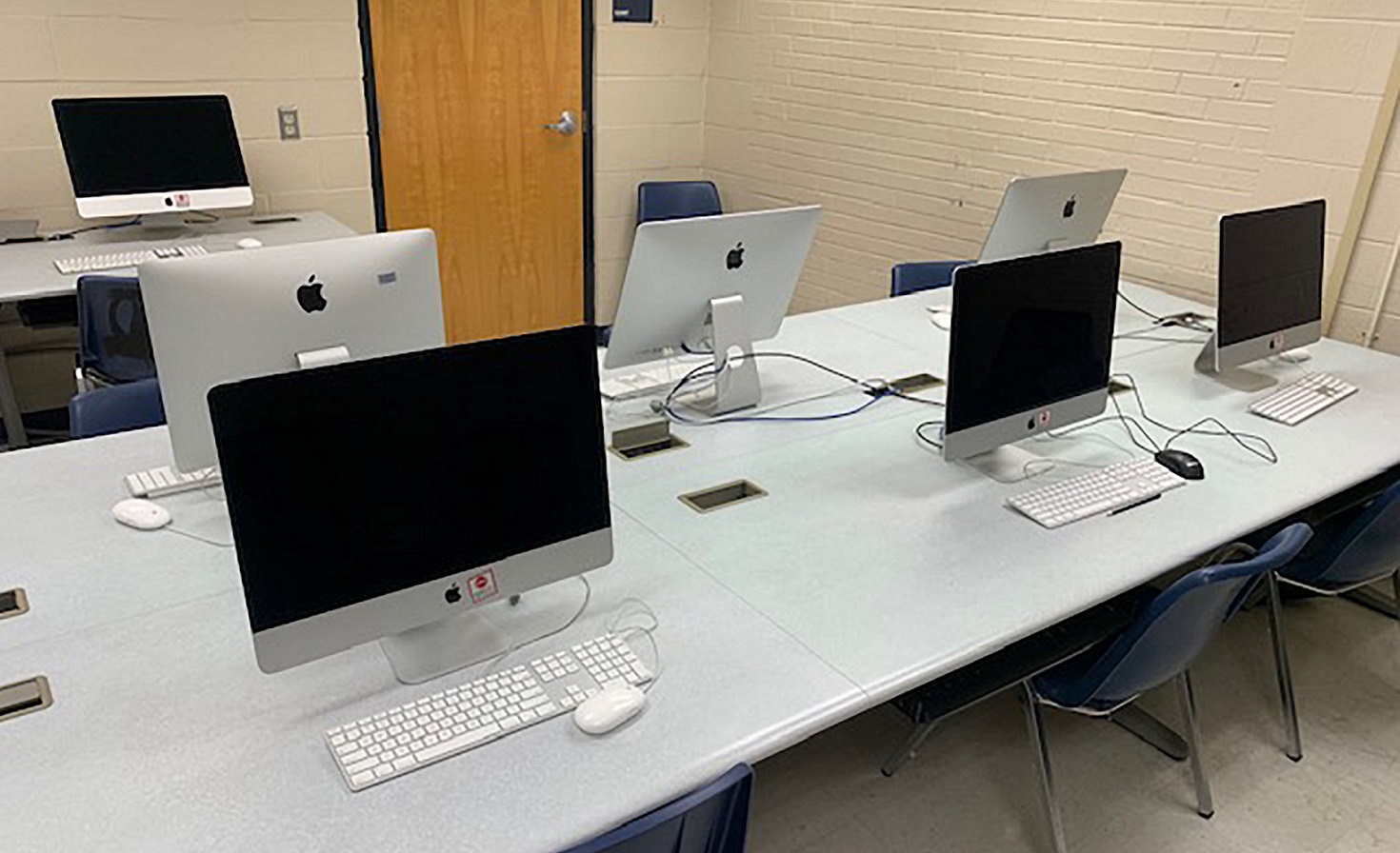 With the “Grow Your Own” funds, we have enhanced our curricula in numerous ways. We now offer a Praxis review course, which provides students with a formal class setting that prepares them to pass both the Praxis Core test, as well as the content-specific Praxis Music test.
With the “Grow Your Own” funds, we have enhanced our curricula in numerous ways. We now offer a Praxis review course, which provides students with a formal class setting that prepares them to pass both the Praxis Core test, as well as the content-specific Praxis Music test.
We have also upgraded our computer labs with Mac computer stations that include industry-standard software. Additionally, we have expanded our music library to include resources and test preparation materials for our department’s major field assessment, Praxis tests and edTPA performance portfolio resources.
Our next initiative is to update our music education laboratory class to include better equipment, instruments, technology and resources that students can use as they complete their field observation hours and student teaching.
International Education
Though our department was engaged in several activities long before the pandemic, the grant has allowed us to greatly bolster the financial support we can offer for study abroad and cultural exchange programs. Our department sends contingents of students to Colombia, Turkey, Europe, South Africa and East Asia annually. During the pandemic, we could not travel abroad, but we found an opportunity in Soliya Connect, a virtual cultural exchange program that brings together college students from the United States, North Africa and the Middle East for online discussions in real-time.
My music education majors gain significant cultural competency through the international programs we offer, and now that we are able to travel abroad again, we can offer our students more grants for studying internationally.
Together We Grow
Through the Tennessee Department of Education’s $2 million “Grow Your Own” grant, we have been able to take advantage of opportunities and provide resources to our students that were previously unattainable. We can now truly “grow our own” and prepare our students for a career in music education.
For those of you who may be having difficulty finding resources for your programs, I encourage you to reach out to your community partners, the business community and your state and local representatives. At TSU, we challenged our local and state officials to “put their money where their mouth is.” And while the funds do not make up for the numerous inequities that continue to persist in our education system, we now have evidence that all our stakeholders are invested in providing an equitable educational experience for all students.












